Right before the Easter holidays, Siegfried Evens, PhD-candidate in the NUCLEARWATERS-project, has written an exciting travelogue about his stay at Virginia Tech in the USA.
Enjoy!
Looking back on four months in Washington, D.C.
By Siegfried Evens
It has been a few months since I came back from my stay in the U.S. And I have to say, I miss it sometimes. But being back in Sweden, I can reflect on the things I have learned and experienced.
I arrived in Washington, D.C. in August 2022, Typical for the summer there, the temperatures were tropical, the humidity excruciating, and the mosquitos everywhere. That is how I learned D.C. is actually a part of “The South.”
I stayed at Virginia Tech, a technical university with a campus in the suburbs of the D.C. area. Although small and often compared to a prison or asylum, the campus had a certain charm. There were also many events for graduate students, with free food and ping-pong! It was a great way to meet other graduate students, of which most worked in engineering and computer science.
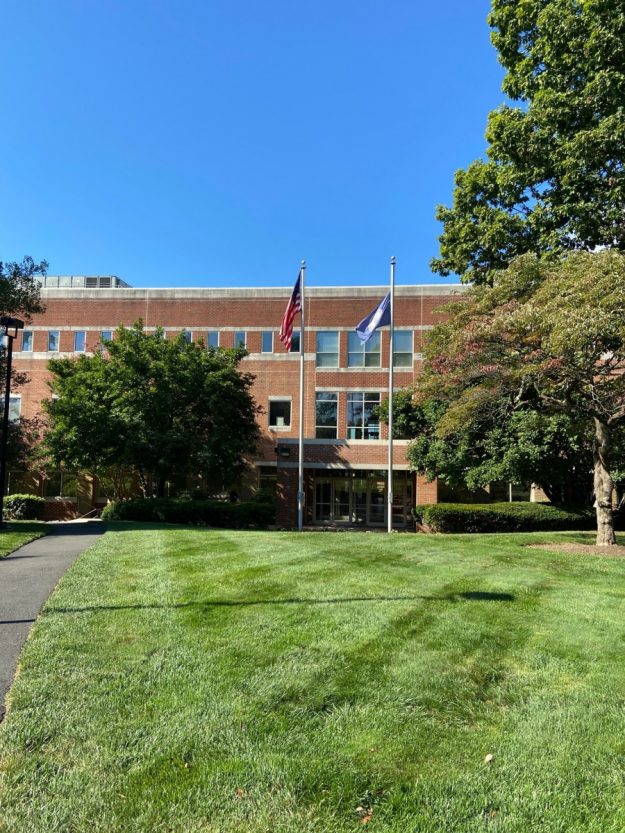
For four months, I was part of the STS Department of Virginia Tech as a guest Ph.D. student, hosted by professor Sonja Schmid. My aim was to get to know STS more and to learn from Sonja Schmid, who has worked extensively on nuclear safety and contributes actively to nuclear policy in the U.S.
One of the aims of my stay was to take part in a project-based STS graduate course. This year, the theme was ‘Nuclear Facilities in Armed Conflict.’ Together with six other American STS students, with varying backgrounds ranging from nuclear engineering to law, we wrote a policy report with recommendations on how to prevent situations like the Zaporizhzhia nuclear power plant in Ukraine. We also presented our work in a public session for policy-makers, government officials, and industry experts. We are working on a policy publication right now.
Washington, D.C. has many archives that are relevant for nuclear historians like me. Although they are not always easy to get into, I came back with thousands of scans from the Library of Congress, the National Academy of Sciences, the National Archives, and – most importantly – the NRC Public Documentation Room. At the NRC, I was helped a lot by the NRC historian, professor Thomas Wellock.
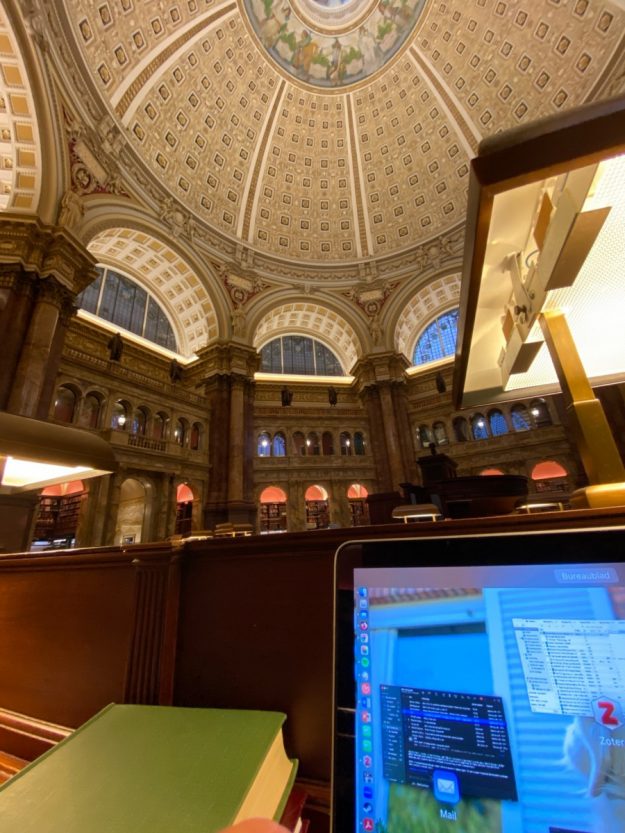
Staying in D.C. was a great opportunity to travel around. I attended the Society of History of Technology (SHOT) conference in the stunning city of New Orleans. I presented my work in the college town of Blacksburg, where the main campus is located, and received great feedback from the STS scholars there. And in an act of ‘dark tourism’, I drove up to the Three Mile Island nuclear plant, which is only a two-hour drive away from D.C.
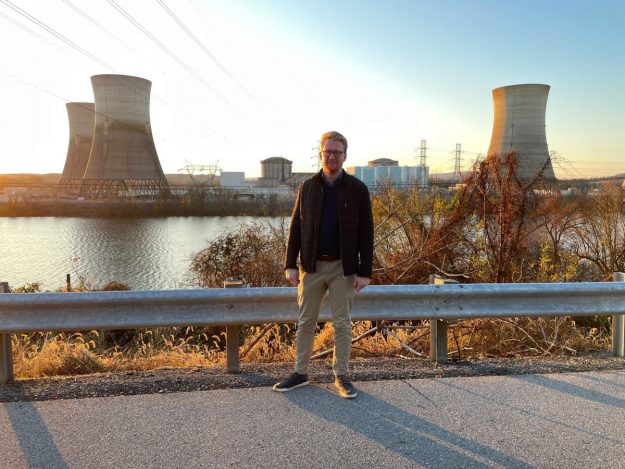
But after each trip, I was also happy to be back in D.C. It is a marvelous place to live. Paradoxically, the capital of the U.S. has a very European feel: wide sidewalks, beautiful architecture, good public transport, lush parks, and so many great pubs and restaurants. I lived in Columbia Heights, a beautiful historic area with small row houses built after the Civil War to house new civil servants.
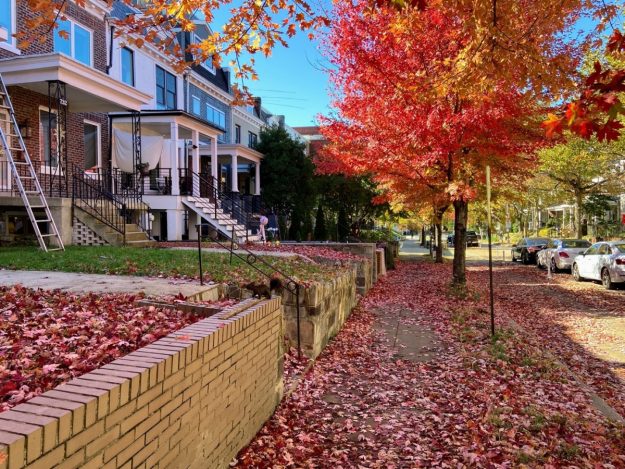
Yet, at the same time, the abundance of museums, monuments, and sports stadiums – but at the same time also the stark racial and social inequalities in the city – remind you of American history and culture every day. American politics is never far away either: when you talk to people, see politicians or “staffers” in the streets, or when walk on the National Mall and cannot get the intro tune of House of Cards out of your head.
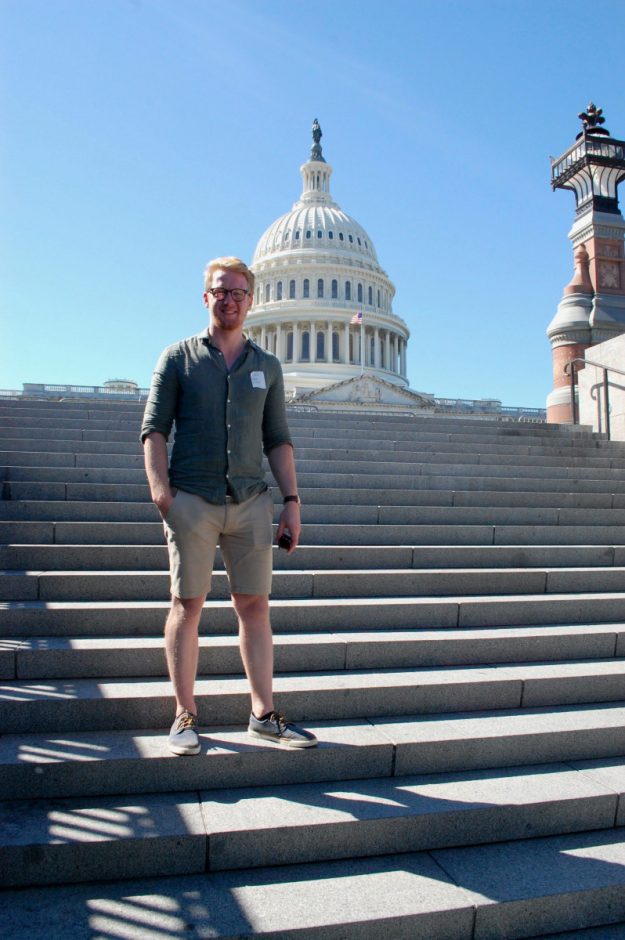
Last but not least, a big thanks to Per Högselius and the Nuclearwaters-project for funding this research stay and for making it possible.
All pictures by Siegfried Evens.


No comments yet. Be the first to comment!